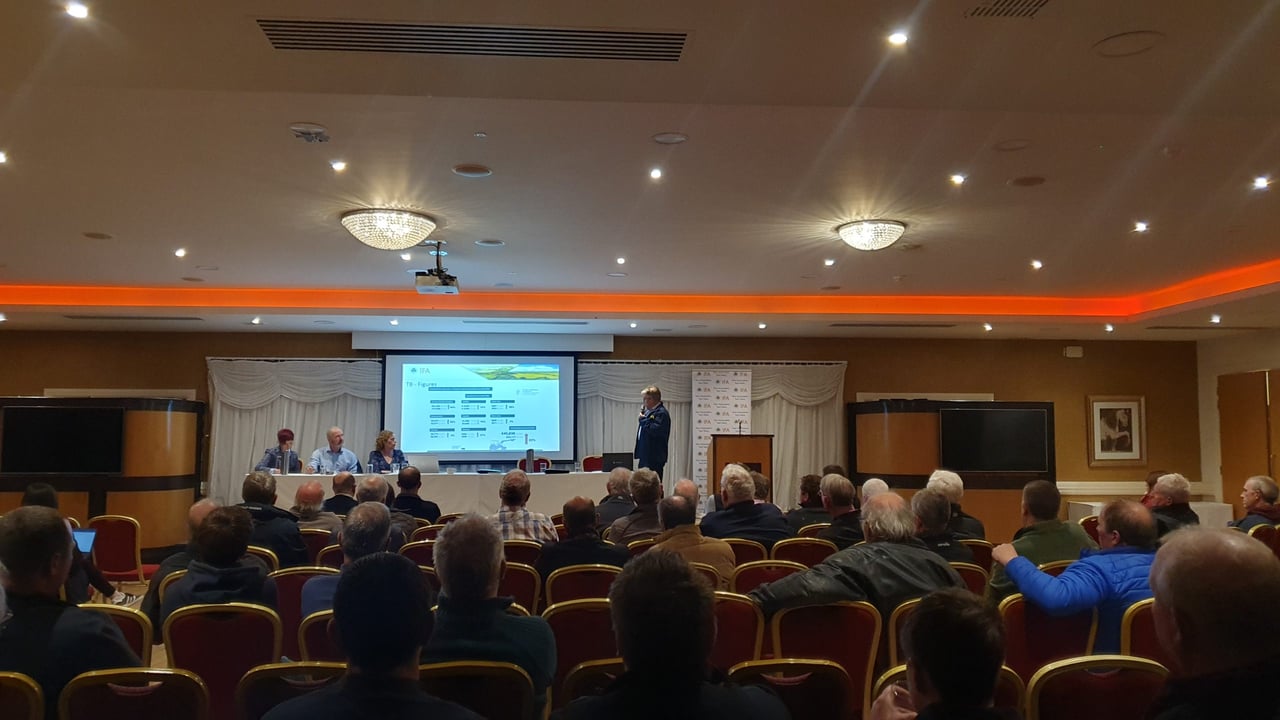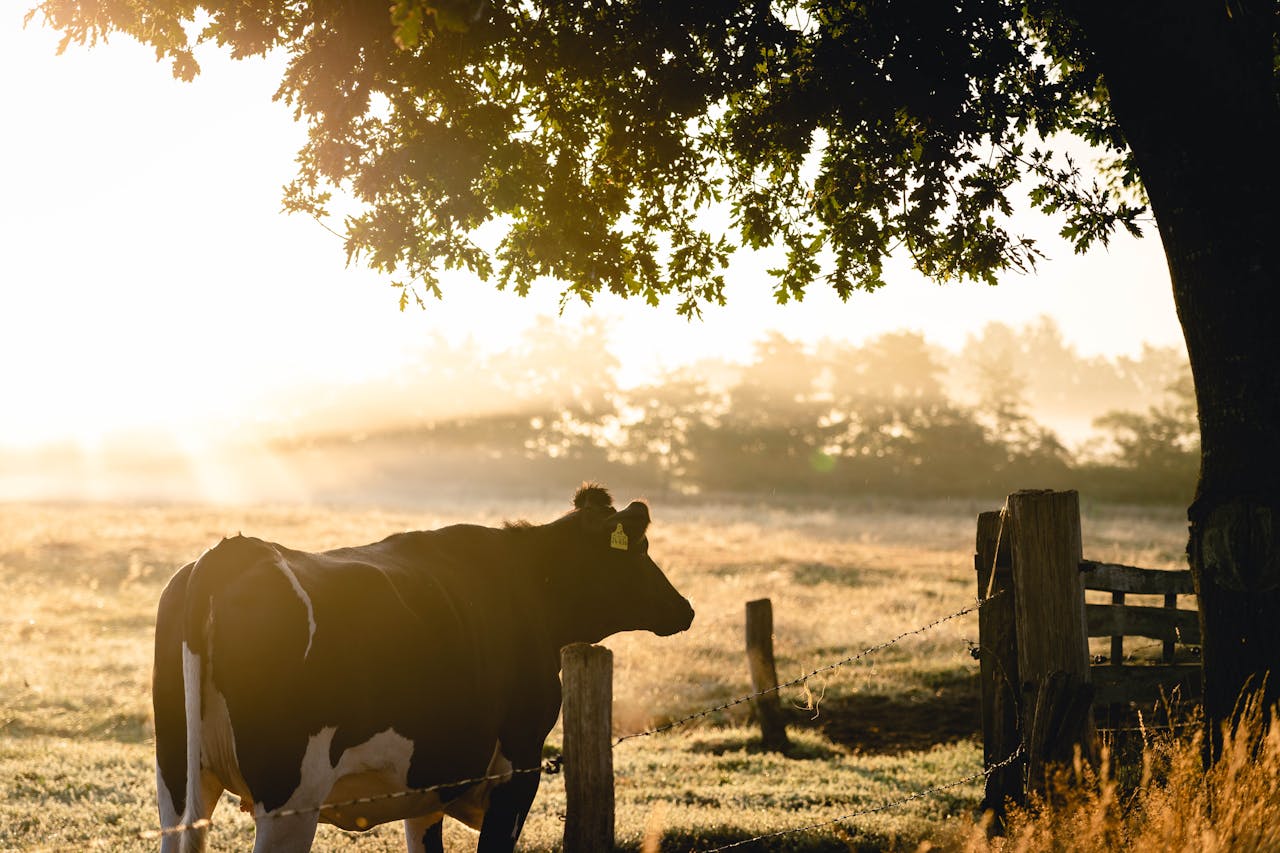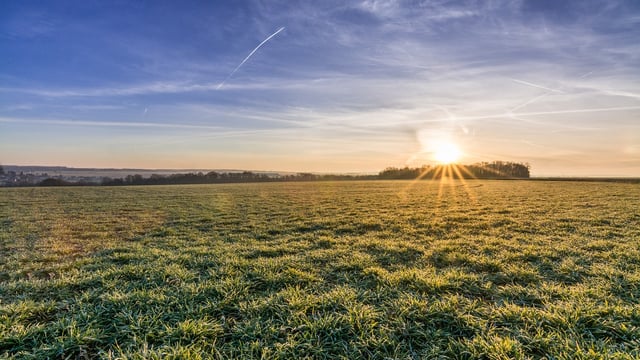'Don't go chasing ghosts' when it comes to TB
Farmers have been warned not to go "chasing ghosts" when it comes to sources of bovine tuberculosis (TB) in this country.
The comments were made by chair of the Irish Farmers' Association (IFA) Animal Health Committee, TJ Maher at a meeting in Tuam, Co. Galway last night (Wednesday, October 30) to discuss the disease.
Farmers in the audience questioned the panel which included Aoife Mulherne, an inspector from the Regional Veterinary Office (RVO) Galway, about other potential sources and vectors of TB such as birds or foxes.
It was after a discussion which outlined that the main causes of TB spread in Ireland are wildlife, cattle and the environment.
Maher responded to the suggestion that the Department of Agriculture, Food and the Marine (DAFM) or National Parks and Wildlife Service (NPWS) should also be testing birds and other animals too by stating: "Lads, don't go chasing ghosts."
In terms of animals spreading TB, Maher said there are three main hosts in this country - badgers, deer and cattle.
Mulherne added that there is "no evidence" to suggest that other animals such as foxes and birds are spreaders of the disease.
Aoife Mulherne outlined that there were 5,906 herds restricted with TB in the 12-month period between October 29, 2023 and October 27, 2024.
This compared to 4,914 for the same period 12 months prior representing an increase of just over 20%.
There were 39, 339 reactors recorded in the year to October 27, 2024 based on data from the Department of Agriculture, Food and the Marine (DAFM).
Overall the incidence of TB has gone from 4.77% to 5.81% in the space of a year according to DAFM, "a figure that really concerns us", according to Mulherne.
The total expenditure under the TB Eradication Programme according to the IFA, for the first half of 2024, was €40.8 million compared to €33.1 million for the same period in 2023, an increase in spending of 23%.
Maher also told farmers that TB increases in an area where trees have been clear felled or in areas where there has been infrastructure projects developed such as new roads or buildings because of the disturbance to wildlife.
Maher explained that Galway is a good news story in terms of the incidence of TB as it is below the national average, but cautioned that "the rest of the country is doing very very badly".
The IFA representative said that a cause for "real concern" is the fact that as the badger vaccination programme has expanded across the country since 2018, so too has the incidence of TB.
"We do have a situation where in a number of the old vaccination areas, there have been significant breakdowns," he said.
"We have a serious concern about the efficacy of the vaccination programme and where it's going at the moment."
Maher said the question has to be raised as to why TB is increasing as the badger vaccination programme is increasing.
He explained that IFA sought a doubling of resources for the Wildlife Control Programme and said that DAFM has committed to hiring 26 additional FRS operatives to continue the ongoing resurveying of new badger setts.
Maher urged farmers to play their part in curbing the spread of the devastating disease.
"This is where you are crucial," he told farmers. "Everyone of you knows your farm. We need to know where our setts are. If you don't know where your setts are, talk to the man who does the pheasant shooting or whoever does the hunt.
"They know where every badger sett is on your farm because when they're out hunting, the dogs find them.
"Find them, fence them off and make sure the department knows where they are," he added.
Maher said that if farmers don't do this basic work, it will be "too late when TB hits us".
The IFA meeting also outlined that the Deer Management Strategy Group has been re-established and is progressing well in developing and implementing a structure to reduce deer numbers.
"Deer have been associated with TB outbreaks, particularly in Wicklow," Maher continued.
"Deer have been identified with TB in other parts of the country but not to the same extent. [Deer] are an absolute nuisance; they destroy grass, fences, farmland.
"They are a huge threat to the road network, people driving cars and they also spread TB disease."
Maher claimed that the DAFM and NPWS are not investing money in deer management for "the love of farmers" adding that the primary objective of deer management from a state point of view is to facilitate the planting of more trees.
"They can't sow a tree in the country at the moment with the level of deer in there because they wipe it out," he said.
"Anyone that goes to the Wicklow Mountains for a drive, it's like a plastic jungle up there because they cannot grow deciduous trees without huge plastic protection or the deer will wipe them out.
"I don't care why it's being done, it has to be done and we have to support it and get on board with it," Maher added.
Agriland will bring you more information from the IFA Galway information event on TB over the coming days, so make sure you continue to check the app regularly for updates.







